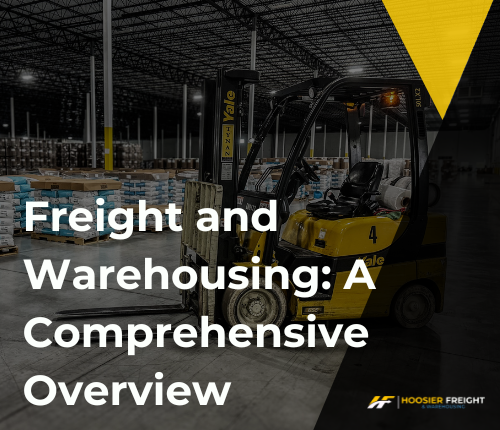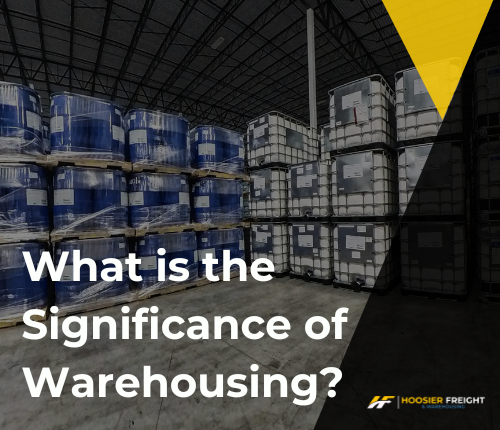
What is the Main Objective of Warehousing?
The realm of Freight and Warehousing is complex and nuanced, with warehousing playing a pivotal role in ensuring the efficiency and resilience of supply chains. Beyond the importance of warehousing, these facilities serve as critical nodes that facilitate the flow of goods, optimize inventory management, and enhance delivery systems to meet the ever-evolving market demands.
What is the Main Purpose of Warehousing?
Warehousing’s primary purpose extends beyond simple storage; it involves a strategic orchestration of various functions aimed at bolstering supply chain efficiency and meeting consumer demands with precision and reliability.
“In today’s fast-paced market, warehouses are not just storage sites but pivotal logistics hubs that significantly contribute to a company’s competitive edge,” notes a logistics expert in a report by the International Journal of Logistics Management. This perspective highlights warehousing’s critical role in modern commerce.
What is the Main Objective of Warehousing?
The overarching objective of warehousing is to streamline the storage and distribution processes, ensuring goods are effectively managed from the point of entry to the final delivery.
Objectives of Warehouse Management System
Warehouse Management Systems (WMS) have revolutionized how warehouses operate, offering:
- Real-time Inventory Visibility: A case study on a leading retail chain, published in the Journal of Business Logistics, showed a 40% reduction in inventory discrepancies with the adoption of a WMS.
- Optimized Order Fulfillment: According to a white paper by Gartner, companies utilizing advanced WMS can achieve up to a 25% increase in order processing speed.
- Space and Cost Efficiency: A survey by Logistics Management revealed that businesses implementing a WMS experienced a 20% improvement in storage utilization, directly impacting cost savings.
Types of Warehousing in Logistics
Warehousing’s versatility is reflected in the various types designed to meet specific logistical needs, each supporting distinct objectives within the supply chain.
Types of Warehousing with Examples
- Public Warehouses: Offer flexible solutions for SMEs needing scalable storage options. For instance, a study in the Harvard Business Review highlighted how public warehouses have enabled small businesses to expand their market reach without significant capital investment.
- Private Warehouses: Cater to large enterprises requiring dedicated storage. Walmart, as detailed in a Forbes article, leverages its network of private warehouses to streamline its supply chain, ensuring unparalleled product availability.
- Automated Warehouses: Emphasize efficiency and accuracy. Amazon’s fulfillment centers, utilizing robotic automation, have set industry benchmarks for speed and efficiency, drastically reducing order fulfillment times, as reported in the Journal of Supply Chain Management.
Warehouse Objectives Examples
Each type of warehouse, from public to automated, aims to fulfill specific objectives:
- A public warehouse focusing on providing cost-effective, flexible storage solutions.
- A private warehouse optimizing inventory for a single business’s unique demands.
- An automated warehouse enhancing operational efficiency through technology.
What are the Objectives of a Warehousing Company?
Warehousing companies aim to offer comprehensive services that support the entire spectrum of supply chain operations, striving to:
- Enhance Efficiency: Implementing state-of-the-art technologies to streamline warehouse operations.
- Improve Service Delivery: Ensuring products are stored, handled, and delivered within optimal timeframes to meet customer expectations.
- Support Business Growth: Providing scalable warehousing solutions that grow with the client’s business.
Warehousing’s objectives are integral to the success and efficiency of the supply chain, from enhancing operational performance with advanced management systems to accommodating diverse storage needs through various types of warehouses. The strategic importance of warehousing in logistics and commerce is undeniable, as evidenced by data and real-world applications.
Discover the strategic advantages of tailored warehousing solutions with Hoosier Freight and Warehousing. Our expertise in advanced warehousing strategies can help elevate your supply chain operations. Contact us today to learn how we can support your business’s logistical needs and contribute to its success.



